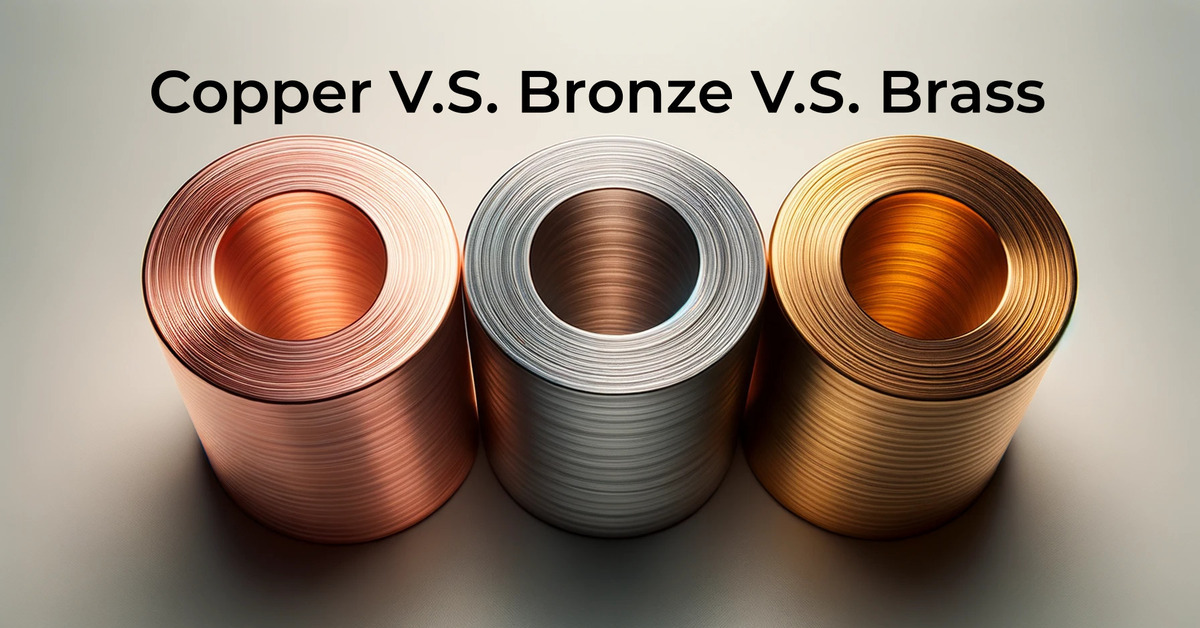
- +8615586668226
- [email protected]
- No. 30, Hongbang Industrial Park, Shenzhen

Brass is an alloy of copper and zinc, known for its bright gold-like appearance and excellent machinability. This copper alloy has been used for centuries due to its versatility and attractive finish.
Understanding the overview of brass helps in selecting the right brass alloy for specific applications.
Bronze is another alloy of copper, but instead of zinc, it’s primarily combined with tin. Bronze alloy is renowned for its hardness and strength, making it suitable for heavy-duty applications.
Knowing what bronze contains is crucial for industries that demand durable materials.
Copper is a pure elemental metal, not an alloy like brass or bronze. It’s known for its excellent electrical conductivity and malleability.
Copper is a pure metal that’s essential in electrical wiring and electronics due to its superior conductivity.
When comparing brass vs bronze, it’s important to note their distinct compositions and properties.
Another difference between brass and bronze is their corrosion resistance; bronze generally performs better in marine environments.
Understanding brass vs copper involves examining their differences in composition and usage.
Compared to copper and brass, brass offers better machinability, making it a popular choice in manufacturing.
When evaluating bronze vs copper, consider their applications and characteristics.
Compared to bronze and copper, bronze offers enhanced strength, making it suitable for components requiring durability.
The benefits of brass make it a preferred material in various industries.
By leveraging brass used in manufacturing, products gain both functional and aesthetic advantages.
Brass and bronze are vital in numerous sectors due to their unique properties.
Understanding the applications of brass and bronze helps in selecting the right material for specific industrial needs.
Different grades of brass offer varying properties.
Choosing the right brass alloy depends on the application’s requirements, such as strength, corrosion resistance, and machinability.
Selecting the appropriate material involves considering factors like cost, properties, and application.
Cost Considerations:
Properties to Consider:
At our Materials Solutions, we help you choose between brass, bronze, and copper to suit your project’s needs.
What is the main difference between brass and bronze?
Brass is an alloy of copper and zinc, while bronze is an alloy of copper and tin.
Why is copper more expensive than brass and bronze?
Copper is a pure elemental metal, making it costlier than alloys which contain other, less expensive metals.
Which metal is best for electrical applications?
Copper has the highest electrical conductivity, making it ideal for wiring and electrical components.
Can brass and bronze be used interchangeably?
Not always. Brass and bronze are alloys with different properties; brass is more malleable, while bronze is harder and more wear-resistant.
How do I decide which material to use for my product?
Consider factors like mechanical properties, corrosion resistance, cost, and application requirements. Consult with our experts at Machining Services for guidance.
Elevate your manufacturing projects by choosing the ideal material. Our Fabrication Services offer expertise in working with brass, bronze, and copper. Explore our CNC Machining capabilities to bring precision to your products.
Ready to make the best choice for your next project? Contact us today and let our experts guide you.
Get the latest trends and facts about CNC fabrication from our blog.
Shenzhen Runkey Precision Technology Co. Ltd, a subsidiary of the Tensun Group, is your trusted one-stop solution for custom manufacturing from prototyping to production.Transforming your idea into reality with digital manufacturing resources,streamlined processes, expert guidance,accelerated timelines, and uncompromising quality.
©2024. CNC Fabrication All Rights Reserved.